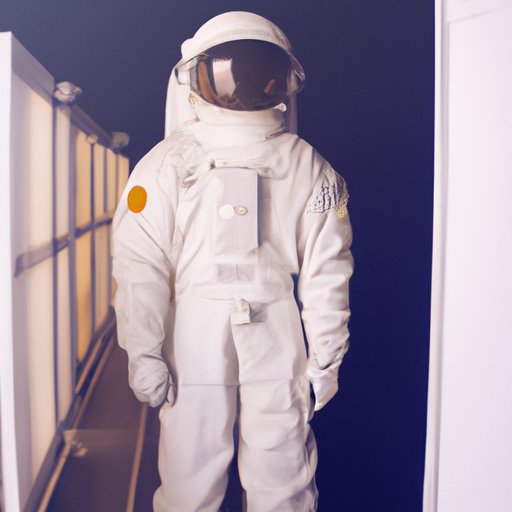Introduction
Space travel is a complex process requiring tremendous preparation and resources. Aspiring astronauts need to be physically and mentally fit, as well as have an in-depth knowledge of science and technology. In addition, they also need to understand how to live in space and how to survive any emergency. All these factors come into play when preparing for a space mission.
Training and Education
Before being selected for a space mission, astronauts need to pass a series of tests to show their physical and mental readiness. Physical fitness is especially important since astronauts will need to work in a weightless environment. A good aerobic capacity, muscular strength, and flexibility are all vital for this purpose. Mental readiness is just as important, as astronauts need to be able to make decisions quickly under pressure. They must also possess excellent problem-solving and communication skills.
In addition to physical and mental preparedness, astronauts must also have a thorough understanding of science and technology. They need to be proficient in areas such as physics, mathematics, engineering, and computer programming. This knowledge is essential for operating the spacecraft and its systems.
Physical and Mental Conditioning
Astronauts must maintain a healthy diet and exercise regularly to stay in top physical condition. Eating nutritious foods and getting plenty of rest is essential for keeping their bodies strong and resistant to illness. Exercise helps astronauts build muscle mass and improve their cardiovascular fitness. It also helps to reduce stress and promote mental clarity.
Stress management is another important aspect of preparation for space travel. Astronauts need to be able to remain calm and focused in high-pressure situations. They should practice relaxation techniques such as mindfulness and meditation to help them manage stress and anxiety.
Learning to Live in Space
Living in space presents many unique challenges that astronauts need to be prepared for. Life support systems, such as air and water purification, must be maintained in order to ensure a safe and comfortable environment. Astronauts also need to learn how to move around and perform tasks in a zero-gravity environment.
Survival Skills
Astronauts need to know how to respond to emergencies while in space. Fire safety is a major concern, as even small fires can cause significant damage in a closed environment. Astronauts must also be trained in how to deal with other potential hazards, such as power outages or equipment malfunctions.
Learning Astronaut Protocols
Each mission has its own set of protocols that astronauts must follow. They must be familiar with mission-specific procedures and regulations, as well as the roles and responsibilities of each crew member. Astronauts also need to learn how to interact with one another and work together effectively in a confined space.
Experiencing Microgravity
Astronauts must become accustomed to living in a low-gravity environment. This requires understanding the effects of weightlessness and adjusting to the new conditions. Astronauts must also learn how to use special tools and equipment designed for use in space.
Suit Preparation
Astronauts must wear a specialized pressure suit during launch and re-entry. The suit must be properly fitted and tested to ensure it is functioning correctly. Astronauts must also practice donning and doffing the suit in order to be prepared for any situation.
Conclusion
Preparing for space travel is a lengthy and complex process. Astronauts must undergo rigorous physical and mental conditioning, learn essential skills and protocols, understand low-gravity environments, and suit up for the mission. By following these steps, astronauts can ensure they are ready for their journey into space.
The benefits of such preparation are numerous. Astronauts gain the confidence and skills needed to handle any situation that may arise during their mission. They also become better equipped to take full advantage of their time in space, allowing them to make the most of their experience.
(Note: Is this article not meeting your expectations? Do you have knowledge or insights to share? Unlock new opportunities and expand your reach by joining our authors team. Click Registration to join us and share your expertise with our readers.)
